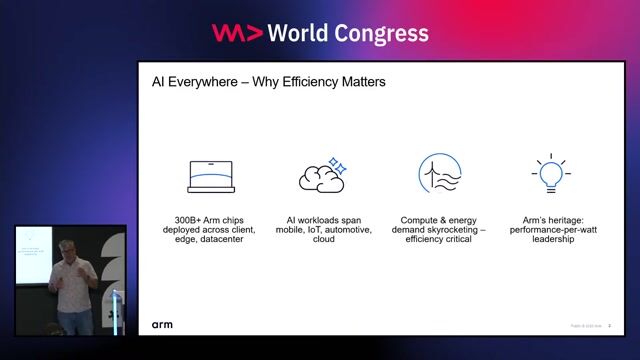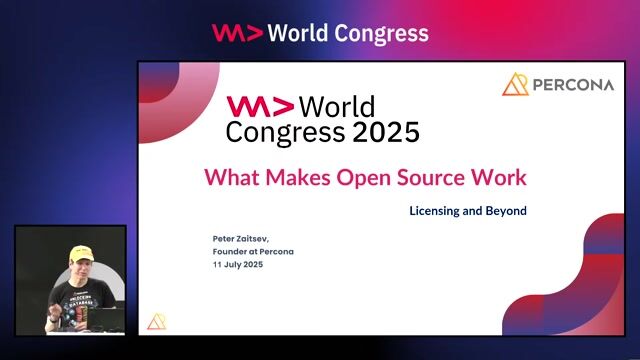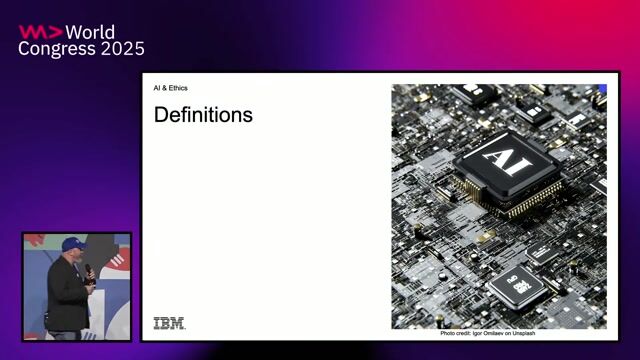Matt White
The Open Future of AI: Beyond Open Weights
#1about 3 minutes
The growing influence and economic value of open source AI
Open source AI is rapidly gaining traction and disrupting the market, mirroring the massive economic value created by traditional open source software.
#2about 2 minutes
How the Linux Foundation supports the end-to-end AI stack
The Linux Foundation provides a comprehensive stack for AI development, from the Linux kernel and Kubernetes to PyTorch, open standards like C2PA, and the AITA protocol for agent collaboration.
#3about 4 minutes
Navigating the challenges of defining open source AI
The rapid growth of open models, exemplified by platforms like Hugging Face, highlights challenges such as inconsistent definitions of "open" and widespread confusion around license compliance.
#4about 4 minutes
A framework for classifying AI model openness and completeness
The Model Openness Framework (MOF) distinguishes between openness and completeness, providing a classification system with three tiers to clarify what components are needed for different use cases.
#5about 4 minutes
Creating the OpenMDW license for permissive AI models
To solve the complexity of multi-license frameworks, the OpenMDW license was created as a single, permissive license specifically for machine learning models, covering components like data and weights.
#6about 1 minute
How the OpenMDW license compares to other options
The OpenMDW license provides more comprehensive coverage for all model components compared to restrictive licenses like OpenRAIL or traditional software licenses like MIT and Apache 2.0.
#7about 2 minutes
Key strategies for building successful open source AI projects
Successful open source AI projects require solving a real problem, building a strong community, choosing the right license, maintaining a public roadmap, and prioritizing ethics and documentation.
#8about 2 minutes
Using an open source approach for AI standards development
Adopting an agile, open source methodology for developing standards and protocols allows for community-driven, iterative progress, and it is better to contribute to existing standards than to fork them.
Related jobs
Jobs that call for the skills explored in this talk.
Featured Partners
Related Videos
 31:05
31:05Open Source AI, To Foundation Models and Beyond
Ankit Patel, Matt White, Philipp Schmid, Lucie-Aimée Kaffee & Andreas Blattmann
 27:53
27:53Open Source: The Engine of Innovation in the Digital Age
Maxim Fateev, Jo Franchetti, Ankit Patel & Ivan Burazin
 35:16
35:16How AI Models Get Smarter
Ankit Patel
 17:18
17:18From Model to Metal: An Open Source Stack for Accelerating Intelligence
Andrew Wafaa
 25:00
25:00What Makes Open Source Work: Licensing and Beyond
Peter Zaitsev
 26:47
26:47The State of GenAI & Machine Learning in 2025
Alejandro Saucedo
 24:51
24:51Kettle and Pot or Peas in a Pod? A Debate on Open-Source and Proprietary Software
Kevin & Roxana Crisan
 28:27
28:27AI & Ethics
PJ Hagerty
From learning to earning
Jobs that call for the skills explored in this talk.


Senior Backend Engineer – AI Integration (m/w/x)
chatlyn GmbH
Vienna, Austria
Senior
JavaScript
AI-assisted coding tools
Machine Learning Engineer, Open-Source Software - Paris/London
Mistral AI
Paris, France
Remote
Python
PyTorch
TensorFlow
Machine Learning
AI Engineer - Python - LLMs - Cloud - Evaluation Frameworks - EdTech
We Are Orbis Group Ltd
API
GIT
Azure
Python
Computer Vision
+2
Developer Advocate - Cloud & AI Workloads
FlexAI
Paris, France
AIML - ML Researcher, Foundation Models
Apple Inc.
Cambridge, United Kingdom
€58K
Python
PyTorch
TensorFlow
Natural Language Processing
Responsible AI Manager - Emerging Technologies
Information Technology Senior Management Forum
Avilés, Spain
Senior
Continuous Integration


